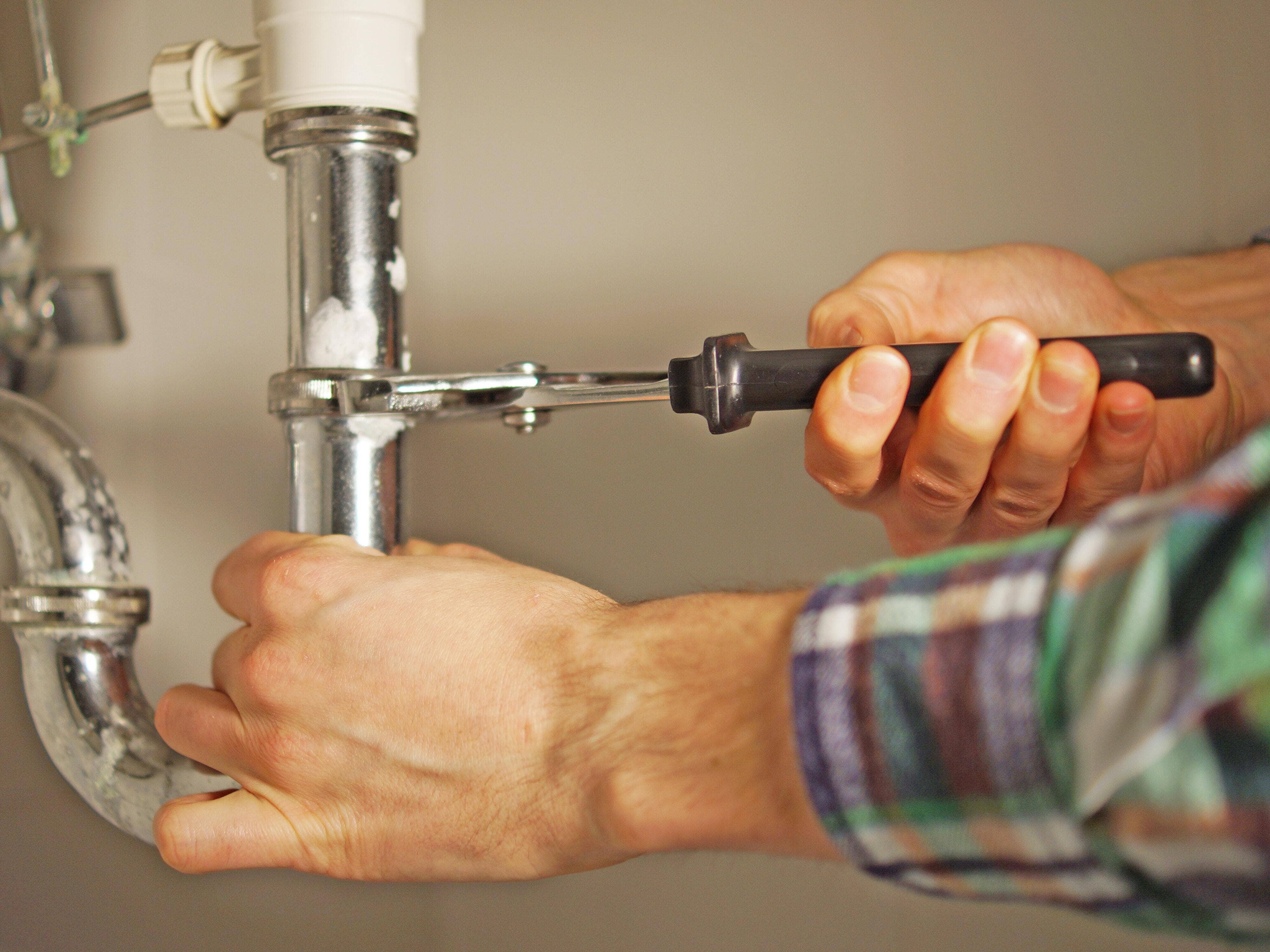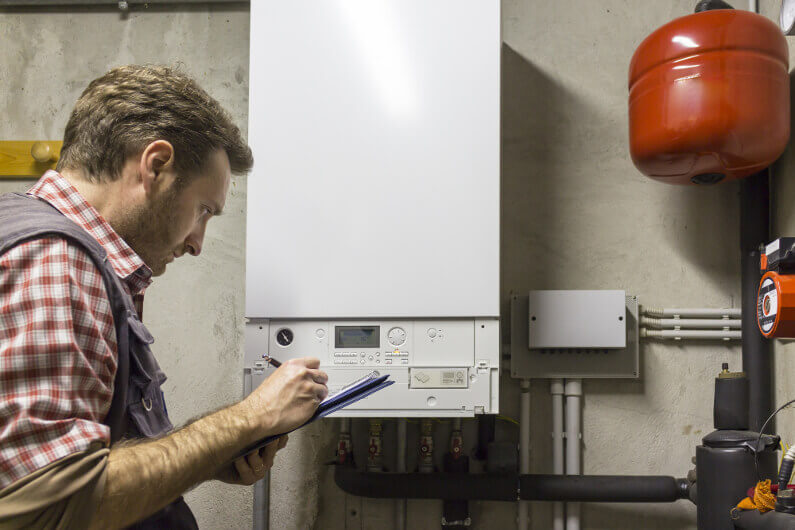Six Habits You’re Inadvertently Harming The Plumbing Appliances
Six Habits You’re Inadvertently Harming The Plumbing Appliances
Blog Article
What're your ideas regarding Don’t Let an Earthquake Damage Your Plumbing?

The secret to durable appliances, unsurprisingly, appertains upkeep. There's no hard and fast regulation that can guarantee your plumbing devices a long wear, however you can stop unneeded damage and also repairs by preventing negative plumbing practices.
You must quit doing these 6 things else you'll maintain calling your plumber over for minor faults.
Purging every little thing
Yes, your toilet drainpipe brings about the sewage systems, yet that does not suggest you need to unload simply anything away. Many 'flushable' materials are really terrific blockage beginners, as an example floss. Asides maintaining obvious non-flushable products like cords and plastics out of your toilet, you must likewise avoid flushing cotton buds, menstruation items, wipes, daipers and also prophylactics down the toilet drain.
Putting grease in the sink
We know appropriately throwing away grease after a hearty meal is a pain. However just putting it down the drain can do long-lasting damage to your pipes. "The fat as well as grease can block your drainpipe terribly sufficient to force you to call a plumber," clarifies Dawson. "Plumbing functions best when it's well taken care of-- not abused with oil."
Utilizing excessive drainpipe cleaner
Making use of a drainpipe cleaner more than one or two times a month is an indication that something severe is taking place within your pipelines. Now, as opposed to facing the main issue, you go with a quick fix; a carbonated drain cleaner. Rightfully, a drain cleaner will deal with the obstruction, but at what cost?
The chemicals in a drainpipe cleaner can accelerate the deterioration of your pipelines. Include that to whatever underlying issue is causing the blockage and you might need to a major trouble on your hands.
If you experience too many blockages, call your emergency plumber as opposed to making use of a drainpipe cleaner.
Not rinsing meals before packing them right into the dishwasher
it's called a dishwasher, yet throwing in recipes, pots, and pans covered in huge food fragments can actually create some severe damages to the device, bring about long-lasting issues down the line. "Homeowners might have to get their dish washer fixed regularly if they don't rinse their meals prior to filling, or at the very least get rid of bigger food items," discusses Audrey Monell, proprietor of Forrest Anderson Plumbing as well as AC in Glendale, Arizona. "Food that obtains stuck on dishes triggers the dishwasher to work harder, which can wear down components much faster, resulting in issues."
DIYing every little thing
With plumbing, a stitch in time really does save nine. You can stop a fullblown plumbing emergency by calling your plumber at the correct time.
You may have discovered a couple of plumbing hacks from your papa, but you should recognize where to draw a line and call a specialist. For example, you may be able to take care of an obstruction yourself, but you shouldn't try to alter a pipeline. You can inequality pipes or overtighten a bolt, triggering even more injury and also damages than you assumed. Calling a plumber is a secure and budget-friendly choice.
Not transforming your dish washer hose pipes
One simple method to make sure that you utilize your dishwashing machine for several years is to change the tube at the very least as soon as in 5 years. This additionally requests cleaning maker pipes.
Gradually, food bits, soap as well as grease can develop clogs within your pipes. Replacing them on time will avoid any presure build up that can damage the inner operations of your dish washer or cleaning maker.
A strengthened steel braided hose does a fantastic job of prolonging your machine's usage time.
No winter months safety measures
Extreme weather conditions are bad for your pipelines, particularly if they're made from steel. You should shield your revealed pipelines, and also your water container, even if you have a hot water heater. You need to also switch off your garden hose shutoff as well as any other outside water channels. These channels are electrical outlets for chilly; you pipes can begin to freeze from outdoors if you do not.
Prevent Water Damage from Plumbing and Appliances
Prevent toilet failure
Be patient after you flush and wait for the valve to completely finish refilling the tank and bowl. If an overflow looks imminent, lift off the tank cover and lift the float to shut off water flow to the tank, and then turn off the supply valve.
Twice a year, inspect a toilet’s components, such as the fill, supply, and flush valves, and the supply line. Make sure you can turn off the supply. If you have older screw type valves that are hard to turn or start leaking, consider replacing them with simpler ball valves that are easy to shut off quickly.
Inspect and maintain your water heater
Inspect your anode rod every two years, or every year once the warranty has expired, to determine if it needs to be replaced.
Flush water heater tanks every six months to remove sediment by attaching a garden hose to the valve at the base. For safety, first turn off the power and run hot water until it is cool.
Get an annual inspection from a plumbing professional including the shut-off valve and all piping. Signs of broken valves and loose or wet joints and rust are a sign that more severe damage is coming.
Maintain washing machine supply lines
Look for signs the supply hose may be ready to fail—blisters in the hose, worn tubing, stress cracks, or a loose connection.
Replace the supply hose with a reinforced steel braided hose if it shows any sign of wear.
Tighten the connection if it feels loose. The most common site of failure is near the connection where the hose bends.
Replace supply hoses every five years, even if there is no obvious deterioration or wear. Some signs of deterioration may occur from the inside out and may not be visible until it is too late. When replacing washing machine supply hoses, always choose a reinforced steel braided hose over the traditional un-reinforced rubber hose. These hoses will last longer and are far less likely to result in a catastrophic water loss.
Prevent plumbing failure
Never pour grease down the drain.
Plant trees away from lateral drain lines to prevent roots from damaging piping.
If your home’s sewer system is connected to the city’s sewer system—a particular problem for older homes—or if you are located downhill or below street level, contact a plumbing professional to install a backflow prevention assembly into your sewer system.
Call a professional if you notice signs of a plumbing problem—an increased monthly water bill, banging pipes, rust stains, moisture in the walls or on the floor, and signs of wet soil erosion near the foundation.
https://disastersafety.org/maintenance/prevent-water-damage-from-plumbing-and-appliances/

Do you like more info about Leak Detection and Repair Without Destroying Your Home? Place feedback down below. We will be interested to find out your reactions about this blog posting. We are looking forward to see you back again in the near future. Appreciated our piece? Please share it. Let another person discover it. Thank you for your time. Visit again soon.
Request An Appointment Report this page